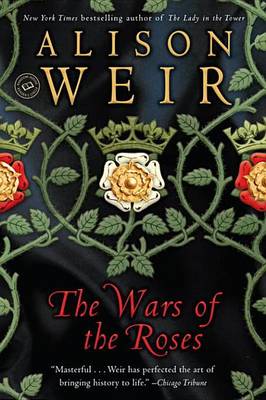Reviewed by gmcgregor on
It's a confusing story, to be sure: it seems like virtually every man in it is named Edward, Richard, or Henry, and they're all related to each other, besides. But Weir does her best to distinguish each of them, and she traces the conflicts not just from the point that they formally began, but from the point where they are rooted. The fighting doesn't get started until about halfway through, but it would be well nigh impossible to understand without all the preamble. She sets her stage carefully, and, much to my relief, when the fighting begins, it doesn't turn into a straight blow-by-blow battle narrative. I find descriptions of war maneuvers to be boring beyond measure, but Weir tells us enough to give us a sense of the battles but not make us feel like we're sitting through a military history lecture.
As always in Weir's work, it's well-sourced (she uses sources contemporary to the events being described, and traces language use back to ensure that she's giving the proper context to what was being reported) and well-written, with a definite sense of narrative and not just fact-dumping. One minor quibble, though, with this book is that it doesn't quite see the Wars through to what I thought to be their end: the ascension of Henry VII and his marriage to Princess Elizabeth of York. While I was hoping to get a bit more information about the end stages of the Wars, I definitely enjoyed getting Weir's take on the period she covered, and would recommend the book to others curious about this period of English history.
Reading updates
- Started reading
- 18 January, 2017: Finished reading
- 18 January, 2017: Reviewed
